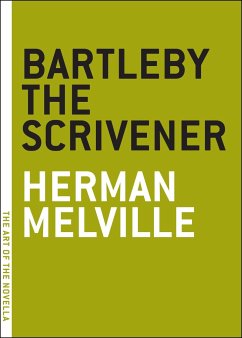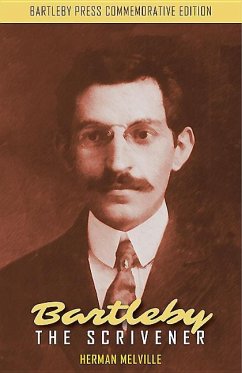
Bartleby, the Scrivener
A Story of Wall Street (Hardcover)
Versandkostenfrei!
Versandfertig in 2-4 Wochen
32,99 €
inkl. MwSt.

PAYBACK Punkte
16 °P sammeln!
Herman Melville's absurdist classic is printed anew in this presentable hardcover edition. First published in 1853, Bartleby, the Scrivener has been lauded as a superb - even perfect - example of short form fiction. In the years since its original publication, the text has received analysis in numerous essays and is commonly studied in school classrooms and university lectures. Variously interpreted as a dark office comedy or as an autobiography by the increasingly iconoclastic Melville, the story concerns the titular Bartleby, a 'scrivener' or clerk hired by the narrator who is a prosperous l...
Herman Melville's absurdist classic is printed anew in this presentable hardcover edition. First published in 1853, Bartleby, the Scrivener has been lauded as a superb - even perfect - example of short form fiction. In the years since its original publication, the text has received analysis in numerous essays and is commonly studied in school classrooms and university lectures. Variously interpreted as a dark office comedy or as an autobiography by the increasingly iconoclastic Melville, the story concerns the titular Bartleby, a 'scrivener' or clerk hired by the narrator who is a prosperous lawyer based in Manhattan. Despite starting very well, the quiet Bartleby begins to refuse to do tasks, and gradually his workload tapers to zero. Each refusal is paired with Bartleby's catchphrase: "I would prefer not to."
Dieser Artikel kann nur an eine deutsche Lieferadresse ausgeliefert werden.















